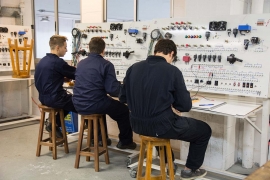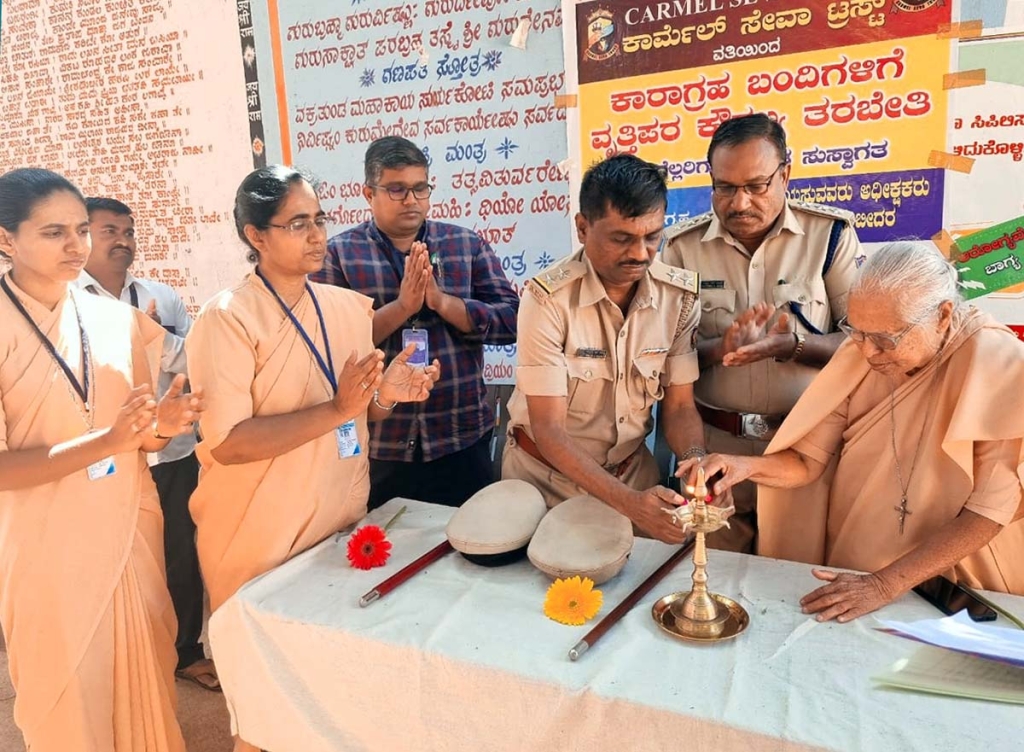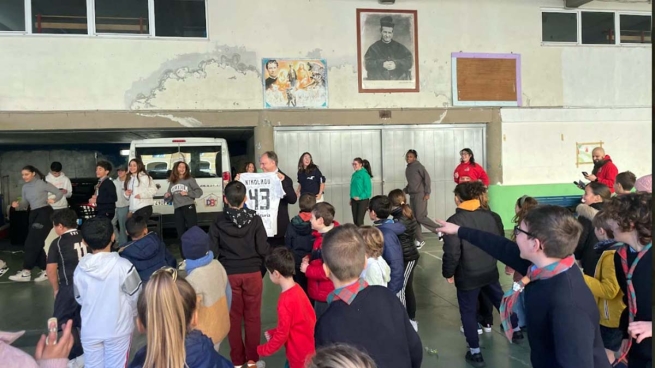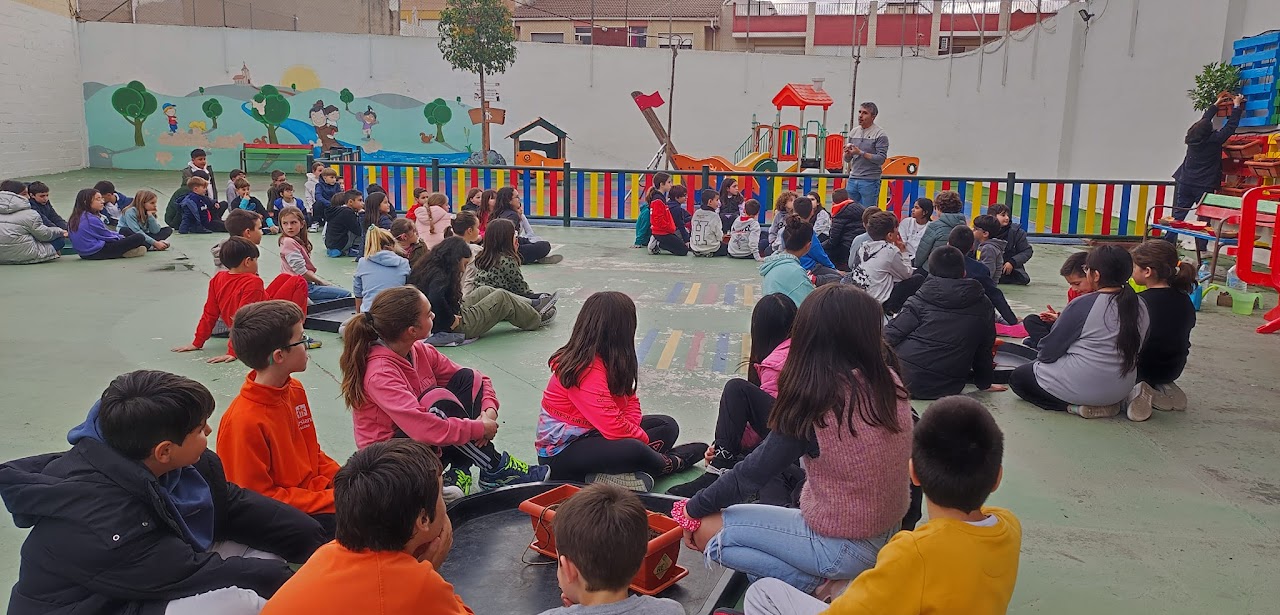URUGUAY: Don Bosco Workshop introduces new automotive mechanics courses for electric vehicles

(MissionNewswire) Don Bosco Workshop, a secondary and vocational education center located in Montevideo, Uruguay’s capital city, has been advancing innovation with its automotive mechanics courses for electric vehicles. The educational center offers both secondary school courses as well as more advanced vocational skills training.
Vocational training courses include hands-on projects, ensuring students gain real-world experience in addition to classroom learning. These projects begin with the research of a problem and the seeking out of alternatives and then move to a design, engineering, planning and estimating phase and end with the working out of the problem in practice.
One of the great challenges that Don Bosco Workshop has faced is the need for constant technical and technological upgrades to improve the quality of education. Given the costs involved, priority is given to investing in specific sectors.
“In Europe by 2022, it will no longer be possible to produce combustion vehicles. Little by little, some electric vehicles are being launched here, but there is nobody trained in their maintenance. There are increasingly more teams, but maintenance is not yet addressed and we want to be involved at the forefront as part of our technical training,” says Alejandro Bastos, an educational officer at Don Bosco Workshop.
Don Bosco Workshop has launched its new automotive program in the same style as its other project-based vocational learning courses. Staff are working to increase their knowledge in technical innovation and use the most cutting-edge information available to be able to teach their students effectively.
In addition, the education center is engaged with the Electrical Challenge Association along with 20 technical schools around the country. The association provides participating schools with two kits for the construction of electric vehicles. Schools form teams of eight to 12 students and compete to create a vehicle. Participants from the Don Bosco Workshop will have to raise funds to finance the construction of their vehicle.
Patrick Hunkeler, a 20-year-old involved in this initiative, explained, “We work very practically and this, in short, helps you. Being in direct contact with all the materials, we relate to what our environment will be. It is important to be able to be organized and work together to work in the best way, and we are looking for cooperation and a good atmosphere.”
Uruguay has managed to decrease its poverty rate by almost half since 2007 when the World Bank estimated that 25 percent of the population was living in poverty. Today, the poverty rate is close to 10 percent with the majority of poor residents concentrated in rural towns and villages.
Most rural citizens in the country do not have the financial resources or education and training necessary to find and maintain stable employment. Running a profitable business venture or maintaining a small farm with access to the national and international markets is increasingly competitive and remains largely out of reach, especially in households run by women alone. The majority of rural poor are those most often engaged in non-agricultural activities.
In addition to a lack of education and employment opportunities, access to affordable housing is a concern for many poor families in Uruguay. Many do not have the resources to purchase homes or land to build on, and schools are often so far away children cannot attend.
Youth crime is on the rise in the country. More than 35 percent of crime committed by adolescents can be traced back to a lack of educational opportunities and employment inequality, according to a recent study by the Center for the Study of Economic and Social Reality. The report also noted that crime rates among young people in Uruguay have doubled over the past 15 years and the rate of violent assaults has quadrupled.
Salesians have been working with youth in Uruguay for many years, providing educational and social development opportunities to help them break the cycle of poverty and lead productive lives.
###
Sources:
ANS Photo (usage permissions and guidelines must be requested from ANS)
ANS – Uruguay – Even with electric cars, education always moves forward
World Bank – Uruguay




